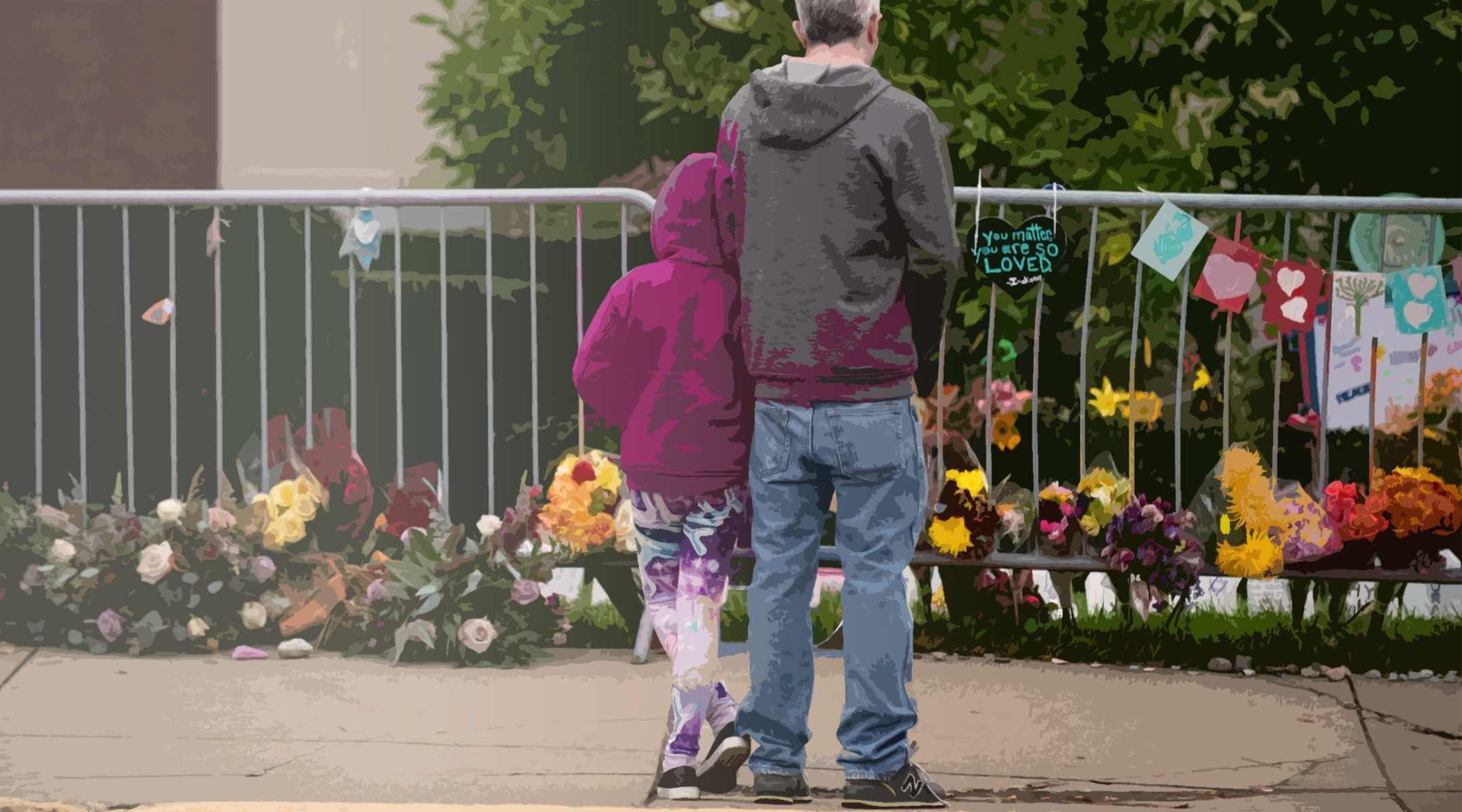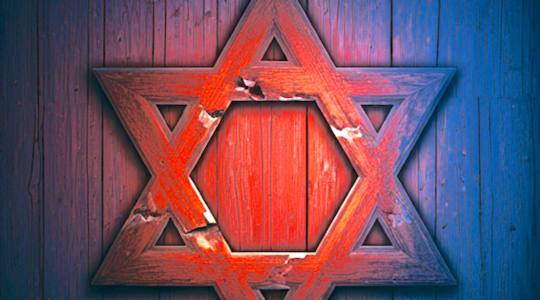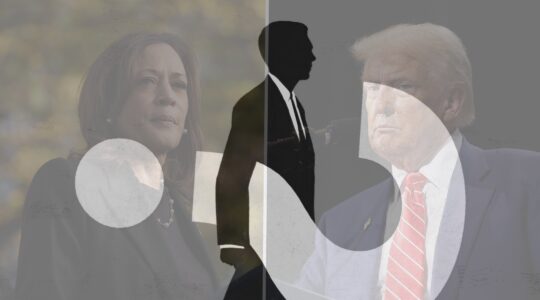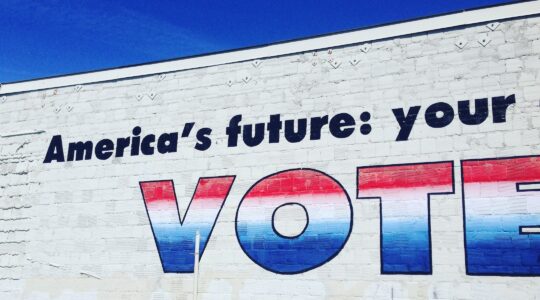(JTA) — It wasn’t until I started converting to Judaism that I realized that anti-Semitism is very much alive and well — and it’s only getting worse.
Last year saw the most anti-Semitic incidents in 40 years, according to the Anti-Defamation League. While the numbers aren’t yet in for 2020, there have been anti-Semitic events every month of the year so far.
And yet, when I talk to my family about anti-Semitism and why I don’t feel safe here in America anymore, they don’t quite understand.
I don’t expect them to, either. If you have never been discriminated against for your identity, then you simply can’t comprehend how it could happen to others, either. You don’t know how scary and powerless you feel when people say they hate you.
Growing up in a white home in a predominantly white neighborhood in Baltimore, I never once faced racism or any form of discrimination. My family and I pretty much looked like everyone else. We could blend in and there were no differences between the people in our community and us.
On the other hand, in high school, when my mom moved us to Pikesville, a predominantly Orthodox Jewish neighborhood, I noticed that they looked different from us right away. Mostly, I’d see them on Saturdays, wearing all black and pushing baby strollers. The only thoughts that crossed my mind were, “Wow, Jewish people walk a lot,” and “They must be really hot in that dark clothing.”
Unlike my mom and I, they couldn’t hide who they were.
Today, I’m one of those Jews walking on Shabbat around my neighborhood, which is a little frightening nowadays. But the few times when I have experienced real anti-Semitism, ironically, have occurred when I wasn’t easily identifiable as an Orthodox Jew. Like the time my landlord told me her father used to “Jew people down,” or when my Uber driver said Jews control the world and like to make little children into matzoh ball soup (really!). The topic came up because we were driving through a predominantly Orthodox Jewish neighborhood in Los Angeles and he spotted some haredi Jews.
The first incident was offensive, and the latter was horrifying. I shared these stories online and with my family, because the only way non-Jews can slightly understand what is going on is if we tell our stories and show them our lived reality.
It took me a while to get to this place, though. I didn’t want to comment on anti-Semitism because I didn’t want to seem like I was being dramatic. One thing that anti-Semites say online is that anti-Semitism doesn’t actually exist, and Jews make it up or are exaggerating it.
I gave into that for a little bit, sadly because I didn’t want to face harassment online. But we must speak up.
This summer, I witnessed #JewishPrivilege shift from an anti-Semitic hashtag on Twitter to one where Jews were sharing their anti-Semitic trauma. I shared the landlord and Uber stories, and also posted, “#JewishPrivilege is when a Hollywood agent yelled at my husband, a comedian, for taking off Jewish holidays because ‘You can’t do that in this business!’” and “#JewishPrivilege is having to hire an armed guard for our synagogue because Jews were massacred in Pittsburgh and Poway.”
I received more engagement than I’ve ever achieved on the platform. One person told me “F— Israel” and another called me a “heathen” for converting. But overall, I found massive support from non-Jews and Jews alike, with many retweeting me and agreeing with what I had said. It empowered me to keep tweeting about anti-Semitism.
We must continue to speak up, show our vulnerability and humanity and help the non-Jewish community understand. Black Lives Matter is very effective at showing people outside of the Black community their pain and trauma and has gained a huge following, with people of all different races and backgrounds supporting them.
There’s no reason that anti-Semitism and its effects shouldn’t be understood and rejected just as firmly as racism.
Unfortunately, a lot of non-Jews think that anti-Semitism is a thing of the past that died with the Holocaust and society has advanced since then. I certainly did before I converted. But when talking about anti-Semitism in the classroom, it has to go way beyond the Holocaust so people can very much realize it’s alive and well today.
Recently, a teenager asked my husband to take off his hat so he could see if he had horns. Maybe if that teen had gotten a better education on anti-Semitism, he would have thought twice before saying that.
When I talk to my family about how America is quickly becoming like Europe before the Holocaust and how I want to move to Israel one day, they say “Really?” and find it hard to believe.
“Why would you move so far away?” they ask. I tell them I want to survive. I send them news articles to back up my claims. I hope they’re beginning to understand. I hope they see that Pittsburgh and Poway were not isolated incidents but indicative of a bigger issue going on.
It may seem dramatic, but I’m OK with being dramatic now. I’m not going to apologize for bringing up the trauma I’ve experienced. That’s not my job. I’m done with feeling powerless.
If our collective chorus gets louder and louder, and we tell our non-Jewish friends and family about anti-Semitism, they may just start to understand — and become valuable allies in the process.

Help ensure Jewish news remains accessible to all. Your donation to the Jewish Telegraphic Agency powers the trusted journalism that has connected Jewish communities worldwide for more than 100 years. With your help, JTA can continue to deliver vital news and insights. Donate today.







